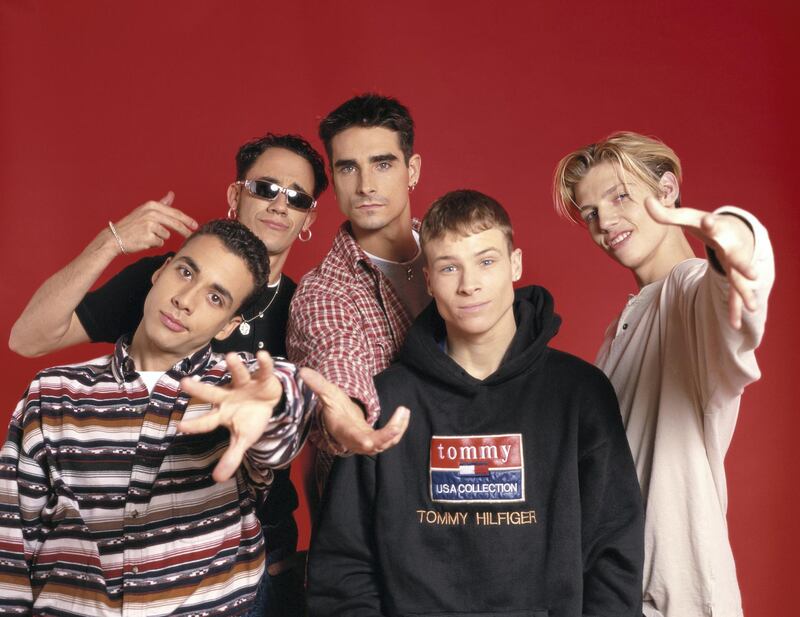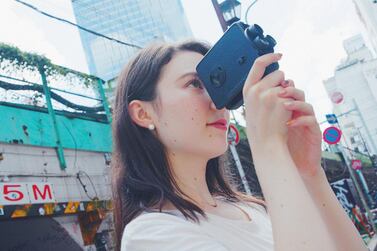The Internet Archive is a non-profit organisation best known for archiving old websites. But that's not all it does. Lurking in a corner of its documents lies the VHS Vault, bringing together a collection of more than 21,000 tapes that have been digitised and uploaded by the public. Grainy slices of television history arrive from all countries, covering everything from films to news broadcasts. And it's addictive.
This is one of countless online opportunities to wallow in the past. Over on Instagram, millions of people have followed accounts devoted to photos of 1990s culture; just an occasional snap of a celebrity or an object that might briefly transport you back in time. One of the biggest, @velvetcoke, was recently taken down for infringement of copyright, leaving huge numbers of people sorely missing their daily fix.
"It has been commented that we're living in a backwards-focused, retro culture with a thirst for revisiting," says sociology professor David Beer in his book The Quirks of Digital Culture. "We tend to think of social media as being distinctly contemporary, [but] they are making individual and collective histories visible and accessible. The result is that the past has a stronger and more tangible presence."
Mar 5, 1986: New Kids on the Block released "Be My Girl" as their 1st single from their self-titled debut album. #80s @NKOTB pic.twitter.com/7VHBRE41Wp
— Old School 80s (@OldSchool80s) March 5, 2020
But it's hardly being foisted upon us – this phenomenon is largely driven by demand. Retro Twitter accounts (such as @oldschool80s, who post "on this day" type throwbacks, such as March 5 being the day that New Kids on the Block's first single was released in 1986) and Facebook pages (like TheNostalgic90s, a private group devoted to crowdsourcing recollections from the decade) have little problem picking up hundreds of thousands of followers, creating what could almost be called a "nostalgia community". Beer sees today's social media as less about communication and more about a space for remembering: "Almost any time, space, event, subculture or social movement can be revisited from any number of perspectives."
But in an era when truckloads of new content appears on streaming services and social media every day, what's the appeal of things that are already familiar to us? Popular western television series such as Friends and The Office constantly ride high on most-watched lists, despite being 15, 20 or 25 years old. Remakes and sequels are mainstays of Hollywood film production. One theory is that when we're overwhelmed with choice and we have limited time to consume, we revert to what we know. We're less likely to be disappointed.
"Nostalgia serves three core existential functions," write academics Constantine Sedikides and Tim Wildschut in a research paper for the American Psychological Association, "self-enhancement, alignment with the cultural world view and fostering of close relationships." The latter is vividly illustrated on social media, where nostalgia appears to foster a rare sense of community. While new episodes of Black Mirror or Doctor Who are greeted with arguments about their respective merits, we're more forgiving when we're in nostalgia mode. We're united by a shared past that feels reassuring, warm and secure. A good example is Throwback Thursday, a much-loved hashtag that appears across all social media platforms, heralding the sharing of nostalgic moments. (So popular, in fact, that people even carry on with it the next day: Flashback Friday.)
Sedikides and Wildschut believe that our need for nostalgia is a "deliberate response to an uncomfortable psychological state". Little wonder, then, that our pursuit of it has become more intense as the world begins to feel more precarious. Nostalgic memories have been proven to make us feel more resilient and more positive about the future. But it is possible to reach too hard. A common social media trope paints the past in unrealistically sunny colours, conjuring up a flawed sense of the "good old days" that people seem to find irresistible. Politicians are known for feeding off this.
A University of Cologne study into the US response to Donald Trump's "Make America Great Again" slogan noted how the "nostalgic longing for America's past" could be based on "idealistic conceptions of events". The past often isn't as good as we remember it, and yet we find ourselves seeking it out and eulogising it. This urge hasn't gone unnoticed by social media companies. Their desire to maximise our use of their services has spawned various tools.
All major platforms have launched nostalgia-related features – from Snapchat's Flashback Stories to Facebook's Memories. Wildschut calls this phenomenon anticipatory nostalgia: "Social media might be about broadcasting our lives and connecting with networks, but these new features mean that they're also based upon a pledge to future memories," says Beer.
Our fondness for nostalgia also drives marketing at every level. One 2014 study found that when consumers are thinking about the past, they actually spend more. Nostalgia sells. When Sega and Nintendo launched the wildly successful mini versions of their 1990s hit gaming consoles, they knew what they were doing. Retro reboots and reworkings appeal to something deep within us – even to the point where we'll buy a second version of something we already own.
Beer believes that modern media is radically changing our relationship with the past. "These relations are being redrawn, almost without us noticing," he writes. "Technologies are appending our memories and playing with them. [They] are remembering more, and also changing how we remember." One thing is clear: we're proving to be extremely willing participants in this shift, delighted to raid the internet for as many memories it can offer us.






